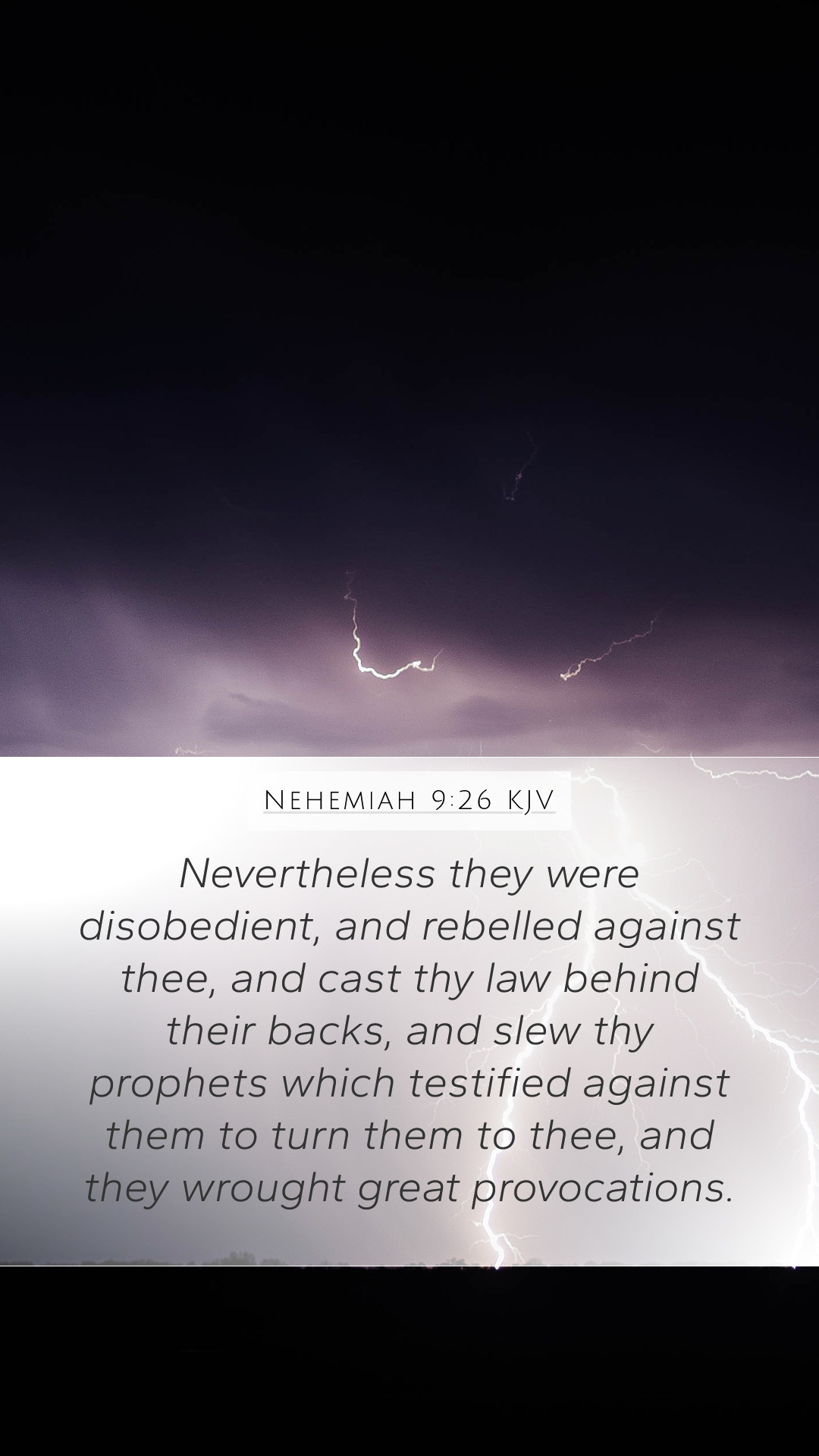Understanding Nehemiah 9:26
Nehemiah 9:26 states: "Yet they were disobedient, and rebelled against thee, and cast thy law behind their backs, and slew thy prophets which testified against them to turn them to thee, and they wrought great provocations." This verse is a poignant reflection on the recurring theme of disobedience and rebellion found throughout the history of Israel. Below, we will explore its meaning, interpretations, and significance through insights gathered from various public domain commentaries, including Matthew Henry, Albert Barnes, and Adam Clarke.
Bible Verse Meanings
In this verse, Nehemiah recounts the failures of Israel, highlighting how the people turned against God despite His continual guidance and the sending of prophets. This serves as a crucial reminder of human tendencies toward rebellion against divine commandments.
Commentary Insights
-
Matthew Henry:
Henry emphasizes the ingratitude and obstinacy of the people, noting that they not only neglected God’s law but also actively opposed His messengers. This reflects a deeper spiritual decline and a failure to recognize the severity of their actions.
-
Albert Barnes:
Barnes elaborates on the idea of casting God’s law “behind their backs,” which signifies a complete disregard and rejection of God’s guidance. He suggests that this action reflects an ongoing pattern of defiance that characterized the nation's history, indicating the seriousness of their transgressions.
-
Adam Clarke:
Clarke provides a thorough exploration of the historical context, reminding readers that the death of prophets was an enduring legacy of resistance among the Israelites. He links this disobedience to a lack of authentic repentance and insight into God's mercy.
Significance of Nehemiah 9:26
This verse captures the essence of Israel’s struggles with faithfulness toward God, encompassing themes of rebellion and divine concern. It reflects on the consequences of forsaking God's commandments and serves as a warning to future generations.
Key Themes
-
Human Disobedience:
The pattern of turning away from God is a significant aspect, pointing to the intrinsic flaw within humanity to stray from divine guidance.
-
God’s Mercy:
Even amidst rebellion, the repetition of God’s patience and willingness to send prophets showcases His enduring love and desire for reconciliation.
-
Rebellion Against God:
The slaying of prophets is a grave act that underscores the violent lengths to which people might go to resist divine authority and truth.
Application of Nehemiah 9:26 in Daily Life
Understanding this verse encourages believers to examine their own lives for areas of disobedience and to remain vigilant against the temptation to disregard God’s laws. It invites reflection on how individuals respond to divine guidance and the importance of upholding a respectful attitude towards spiritual teachings.
Cross References
- Jeremiah 2:13 - Reflects on forsaking God as the source of living water.
- Matthew 23:37 - Jesus laments the killing of prophets and those sent to guide the people.
- Acts 7:52-53 - Stephen highlights the history of rejecting God’s messengers.
Conclusion
Nehemiah 9:26 provides profound insights into the nature of human fallibility and God’s persistent love. Engaging with this scripture through study aids and commentaries offers a deeper understanding, enabling believers to apply its lessons meaningfully in their lives.


